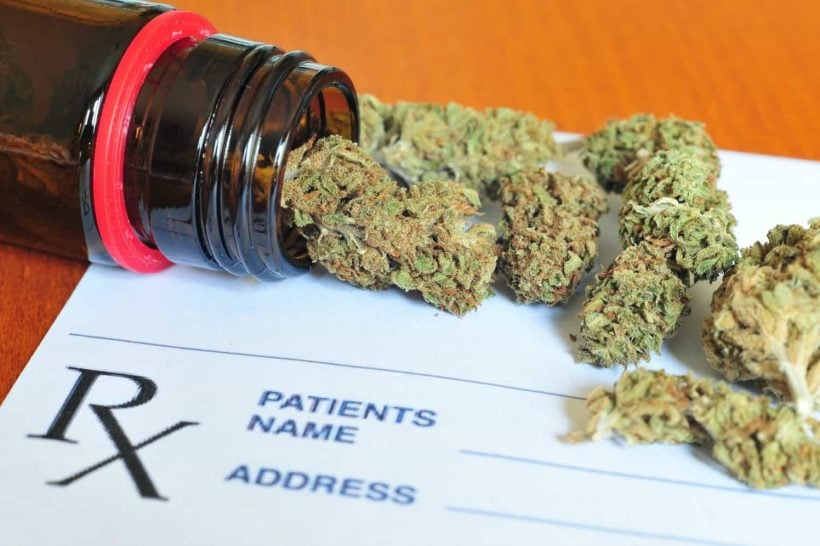Shedding Light on What Medical Cannabis Can Cure: a Comprehensive Evaluation of Its Healing Features
In current years, there has been a growing rate of interest in the healing potential of clinical marijuana. While unscientific evidence abounds, a detailed evaluation of the scientific data pertaining to the efficiency of medical marijuana in treating these conditions is warranted.
Chronic Discomfort Monitoring
Chronic pain monitoring continues to be an essential facet of treatment, demanding a thorough approach for efficient treatment. Recently, medical marijuana has actually become a potential healing alternative for individuals experiencing from chronic pain conditions. The endocannabinoid system, which plays a crucial duty suffering modulation, has been targeted by cannabis-based treatments to enhance and alleviate symptoms lifestyle for clients.

Moreover, medical marijuana uses an encouraging option for people that experience unbearable negative effects from conventional discomfort drugs. Its capacity to deal with pain with a different mechanism makes it a useful addition to the collection of therapies readily available for persistent discomfort administration.
Epilepsy Therapy Possible
Clinical cannabis has revealed promising potential in the therapy of epilepsy, using an unique healing technique for taking care of seizures in patients. Epilepsy is a neurological condition characterized by frequent seizures, affecting people of every ages. Traditional treatments for epilepsy include antiepileptic medicines, yet these drugs might not be effective for all people and can have considerable adverse effects.
Research on using clinical marijuana for epilepsy has disclosed motivating outcomes. Cannabidiol (CBD), a non-psychoactive substance located in marijuana, has actually been specifically highlighted for its anticonvulsant buildings. Researches have shown that CBD can decrease the regularity and extent of seizures in people with treatment-resistant kinds of epilepsy, such as Dravet syndrome and Lennox-Gastaut syndrome.
Moreover, the FDA has actually approved a CBD-based medication, Epidiolex, for the therapy of seizures associated with these serious types of epilepsy. This milestone highlights the expanding recognition of medical cannabis as a valuable restorative alternative for handling epilepsy and gives wish for clients who have actually not reacted well to standard treatments.
Nausea Alleviation Advantages
The alleviation of queasiness through making use of cannabis has been significantly acknowledged for its restorative benefits in different medical problems. Nausea and vomiting prevail signs experienced by people undertaking radiation treatment, those with food poisonings, and individuals with chronic discomfort conditions. Medical marijuana, with its energetic substances such as THC and CBD, has revealed guarantee in offering alleviation from queasiness.

In addition, clinical cannabis offers an all-natural choice for individuals that do not react well to typical anti-nausea medications or that experience serious adverse effects from these medications. Patients undertaking chemotherapy, specifically, have actually reported significant enhancements in their lifestyle when utilizing marijuana to manage queasiness. As research study in this area remains to grow, medical marijuana is significantly being taken into consideration as a useful option for queasiness relief in various clinical setups.
Anxiety Reduction Results
Research studies have find out here now shown the capacity of cannabis in reducing anxiousness signs through its communication with the endocannabinoid system. my link The endocannabinoid system plays a critical role in controling emotions, including stress and anxiety, by keeping homeostasis in the body. Cannabinoids in marijuana, such as THC and CBD, interact with the endocannabinoid receptors in the brain, specifically the CB1 and CB2 receptors, to modulate anxiety-related responses.

Clients with conditions like generalized stress and anxiety disorder (GAD), social stress and anxiety problem, and post-traumatic stress problem (PTSD) may take advantage of the anxiolytic residential or commercial properties of cannabis (Medical Marijuana Doctor Clinton MS). Further study is required to figure out optimal does, distribution methods, and lasting effects on stress and anxiety administration.
Potential for Inflammation Control
With its recognized anti-inflammatory properties, marijuana has revealed promise in possibly controlling inflammation within the body. Swelling is the body's all-natural feedback to injury or infection, but when it comes to be chronic, it can add to different conditions such as Visit Website arthritis, inflammatory bowel illness, and also heart problem. Study recommends that the cannabinoids discovered in marijuana, such as THC and CBD, can help decrease and control the immune feedback inflammation.
Studies have shown that marijuana can engage with the endocannabinoid system, which plays a vital function in managing swelling. By targeting the cannabinoid receptors, marijuana substances can modulate the immune response, leading to a decrease in swelling degrees. This makes marijuana a possible candidate for handling inflammatory problems where traditional therapies have fallen brief.
In addition, cannabis-derived items like CBD oil have acquired popularity for their anti-inflammatory residential properties, with numerous people using them as an all-natural treatment for problems connected with inflammation. While more research is needed to completely understand the devices behind cannabis's anti-inflammatory results, existing findings reveal encouraging outcomes for the prospective use medical marijuana in controlling swelling.
Final Thought
In final thought, medical marijuana has revealed encouraging healing residential properties in managing chronic discomfort, treating epilepsy, easing nausea or vomiting, minimizing anxiousness, and managing inflammation. Its potential advantages in different medical problems highlight the value of more study and exploration into its medical use. The proof recommends that clinical marijuana can be a valuable choice treatment alternative for individuals looking for relief from an array of conditions and signs.
In recent years, medical marijuana has emerged as a prospective therapeutic choice for individuals experiencing from chronic pain problems.Clinical marijuana has actually shown appealing possibility in the therapy of epilepsy, providing a novel restorative approach for managing seizures in individuals. As study in this area proceeds to grow, medical cannabis is increasingly being thought about as a useful choice for nausea alleviation in numerous clinical settings.
In conclusion, medical cannabis has actually revealed encouraging restorative residential properties in handling persistent discomfort, treating epilepsy, soothing queasiness, minimizing anxiousness, and regulating swelling. The evidence recommends that clinical cannabis could be a valuable option therapy option for clients looking for relief from an array of conditions and signs.